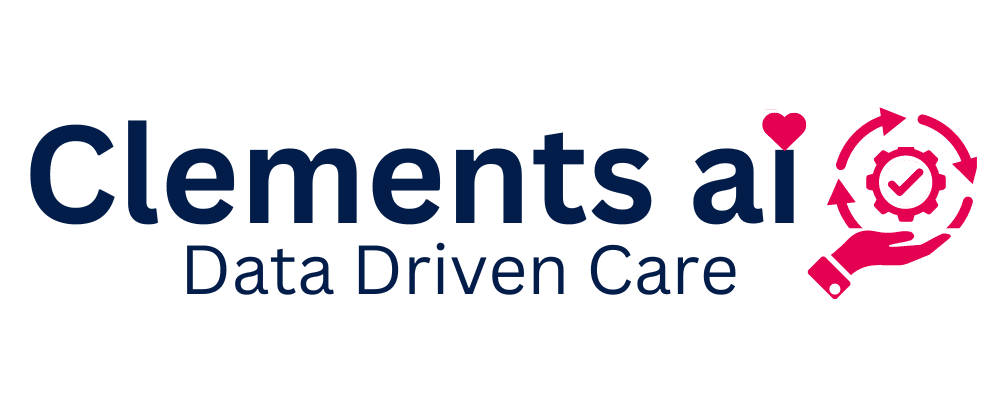Transforming Healthcare Efficiency with Business Process Automation in Victoria
Ma
In the fast-paced world of healthcare, efficiency isn't just a goal, it's a necessity. Hospital administrators and healthcare professionals are constantly seeking ways to enhance service delivery, improve patient care, and reduce operational costs. One of the most promising avenues for achieving these objectives is through business process automation (BPA). By automating repetitive and time-consuming tasks, healthcare facilities in Victoria can streamline their operations and focus more on patient-centric activities.
In this blog post, we will explore the concept of business process automation in healthcare. We'll discuss its relevance by examining the current needs in the industry, highlighting its benefits, and providing insights into its applications. Finally, we'll explore future trends in healthcare BPA, culminating in a call to action for healthcare facilities to consider adopting these innovative solutions.

Understanding Business Process Automation (BPA)
Business process automation refers to the use of technology to execute recurring tasks or processes in a business where manual effort can be replaced. It is designed to streamline operations, reduce errors, increase efficiency, and provide better service delivery. In healthcare, BPA can range from automating appointment scheduling and patient check-ins to managing billing and claims processing.
The essence of BPA lies in its ability to harmonize disparate systems and create a seamless flow of information. This is crucial in healthcare settings where data accuracy and timely access to information can significantly impact patient outcomes. Automating such processes not only saves time but also minimizes the risk of human error, ensuring that critical healthcare services are delivered more efficiently.
For healthcare professionals and administrators, understanding BPA means recognizing the potential to revolutionize how hospitals and clinics operate. By leveraging technology, they can unlock new levels of productivity and focus on what truly matters—providing excellent patient care.
The Need for BPA in Healthcare
Healthcare is an industry brimming with complexity. From patient admissions to discharge, every step involves meticulous coordination and precise execution. The demand for healthcare services continues to grow, compounded by an aging population and an increase in chronic diseases. This surge places immense pressure on healthcare facilities to optimize their processes and deliver high-quality care.
One of the key drivers for adopting BPA in healthcare is the need to manage vast amounts of data efficiently. Manual handling of data not only consumes valuable time but also increases the likelihood of errors. By automating data entry, retrieval, and analysis, healthcare professionals can make informed decisions more quickly and accurately.
Additionally, the administrative burden in healthcare settings often detracts from patient-facing activities. By automating routine administrative tasks, healthcare staff can focus on providing personalized care and improving patient experiences. This shift allows hospitals and clinics to operate more smoothly and allocate resources where they are needed most.

Benefits of BPA in Healthcare Settings
Implementing BPA in healthcare offers a multitude of benefits that extend beyond mere cost savings. One significant advantage is enhanced operational efficiency. Automation allows healthcare providers to streamline their workflows, reducing the time spent on repetitive tasks and allowing staff to concentrate on more critical aspects of patient care.
Another benefit is improved data accuracy and quality. Automated systems minimize human errors that often occur in manual data entry, leading to more reliable data. This accuracy is essential for clinical decision-making, diagnostics, and patient safety.
Furthermore, BPA can lead to better compliance and regulatory adherence. With automated processes, healthcare facilities can ensure that they meet industry standards and regulations consistently, reducing the risk of non-compliance and potential legal issues.
Future Outlook and Trends in Healthcare BPA
The future of business process automation in healthcare looks promising, with several trends shaping its evolution. Artificial intelligence (AI) and machine learning are emerging as game-changers, enabling predictive analytics and personalized patient care.
Additionally, the integration of BPA with electronic health records (EHR) is expected to become more seamless, facilitating real-time data sharing and improving clinical decision-making.
Telehealth and remote patient monitoring are also set to benefit from BPA, as automation streamlines data collection and analysis, allowing healthcare providers to offer more efficient remote care.
For hospital administrators and healthcare professionals in Victoria, the time to consider BPA is now. By exploring the potential of automation and learning from successful implementations, they can position their facilities for success in the digital age.
Victoria’s Leading Healthcare Business Process Automation Provider
Ready to take the first step towards transforming your healthcare facility? Connect with Clements AI to learn how our expertise in artificial intelligence and clinical data management can drive efficiency and innovation in your organization. Together, let's revolutionize healthcare for a better tomorrow.
